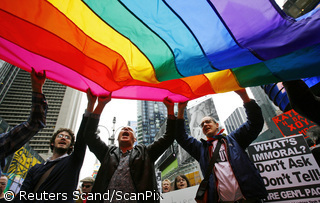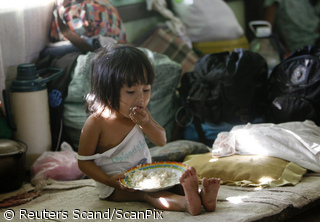Many more workers have arrived in Britain from Eastern Europe since enlargement of the EU in May than the Government predicted, figures showed yesterday
Published:
11 November 2004 y., Thursday
Many more workers have arrived in Britain from Eastern Europe since enlargement of the EU in May than the Government predicted, figures showed yesterday.
Nearly 91,000 people from the eight former Soviet-bloc states that joined the EU registered to work in the first five months after the expansion. The Tories said many others may have taken on a job without registering.
In the run-up to enlargement, ministers dismissed suggestions of a major influx of migrant workers and regularly cited an official estimate of between 5,000 and 13,000 additional arrivals per year.
The latest figures are seven times that forecast in under half the period. However, David Blunkett, the Home Secretary, said they showed that the worker registration scheme, set up to dampen controversy over enlargement, was operating effectively.
Normally, EU citizens can travel freely to settle and work in other member states. But the 15 existing members were allowed to operate controls on migration from the new states for up to seven years.
While most governments imposed restrictions, Britain decided not to. The Government said Britain needed more workers but it faced accusations of failing to protect the country's borders. It decided to establish a registration scheme to discourage new arrivals from working in the black market.
The Home Office said 45 per cent of those who had registered were already in the country. Mr Blunkett said the new arrivals, mostly aged between 24 and 34, had helped to fill job vacancies in hospitality and agriculture, and had legalised some who had not been paying tax.
Šaltinis:
news.telegraph.co.uk
Copying, publishing, announcing any information from the News.lt portal without written permission of News.lt editorial office is prohibited.
The most popular articles
 Tiwonge Chimbalanga and Steven Monjeza are married, but in Malawi homosexuality is banned.
more »
Tiwonge Chimbalanga and Steven Monjeza are married, but in Malawi homosexuality is banned.
more »
 The World Bank today launched the fourth book in the critically acclaimed Moving Out of Poverty series, which provides bottom up perspectives on poverty and local realities by over 60,000 people living in 500 communities in 15 countries.
more »
The World Bank today launched the fourth book in the critically acclaimed Moving Out of Poverty series, which provides bottom up perspectives on poverty and local realities by over 60,000 people living in 500 communities in 15 countries.
more »
 Ten years ago, European leaders pledged to end poverty in the EU by 2010. As this deadline approaches, the goal is still some way off.
more »
Ten years ago, European leaders pledged to end poverty in the EU by 2010. As this deadline approaches, the goal is still some way off.
more »
 For many 2009 will be a historic year with the coming into force of the Lisbon Treaty, the outcome of the Copenhagen summit and the inauguration of the first black US president.
more »
For many 2009 will be a historic year with the coming into force of the Lisbon Treaty, the outcome of the Copenhagen summit and the inauguration of the first black US president.
more »
 Not answering the phone, celebrating Hogmanay and reading Dickens' Christmas Carol are just three seasonal traditions that MEPs shared with us.
more »
Not answering the phone, celebrating Hogmanay and reading Dickens' Christmas Carol are just three seasonal traditions that MEPs shared with us.
more »
 More and more people make their homes and own property in EU countries other than the one in which they hold citizenship.
more »
More and more people make their homes and own property in EU countries other than the one in which they hold citizenship.
more »
 European Parliament President Jerzy Buzek has made an televised Christmas and New Year address to European citizens, looking ahead to the challenges of the coming year.
more »
European Parliament President Jerzy Buzek has made an televised Christmas and New Year address to European citizens, looking ahead to the challenges of the coming year.
more »
 Lithuania takes the 1st position in the EU by the number of students in the country.
more »
Lithuania takes the 1st position in the EU by the number of students in the country.
more »
 Sergei Kovalev, former political prisoner turned activist for Russian human rights group Memorial gave an emotional and heartfelt address to the European Parliament on Wednesday 16 December.
more »
Sergei Kovalev, former political prisoner turned activist for Russian human rights group Memorial gave an emotional and heartfelt address to the European Parliament on Wednesday 16 December.
more »
 Strengthened passenger rights for travel by bus are an important item on the agenda when the Transport, Telecommunications and Energy Council (TTE) meets on 17–18 December.
more »
Strengthened passenger rights for travel by bus are an important item on the agenda when the Transport, Telecommunications and Energy Council (TTE) meets on 17–18 December.
more »